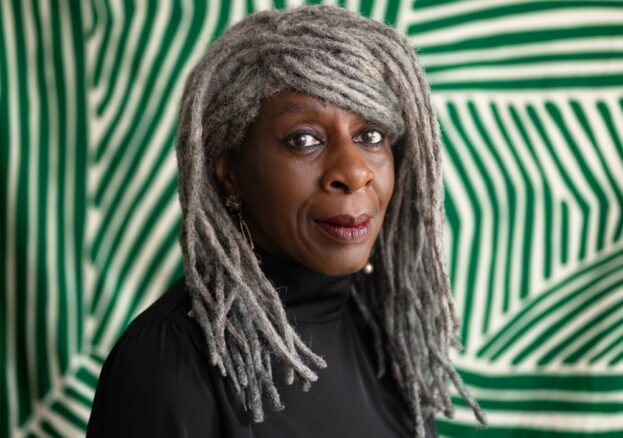
Baroness Lola Young of Hornsey is a crossbench peer in the House of Lords, cultural advocate, and campaigner for social justice. A former actress, professor of cultural studies, and champion of the arts, she has spent her career bridging creativity and politics
Young is a woman of remarkable intellect, passion, and authenticity. Her life and career reflect a deep commitment to learning, justice, and self-expression. She has cultivated knowledge across diverse fields, notably politics and the arts, and consistently challenges societal expectations and stereotypes. Young’s refusal to conform to reductive labels is a testament to her character.
Power of hindsight
Young’s reflections on her childhood reveal a profound impact of hindsight in understanding racism and identity. Raised by a white foster mother, Daisy Vince, during a time of overt racial prejudice, Young experienced both love and alienation. Vince, born in 1886 at the height of the British Empire, took Young in aged 8 weeks. Despite societal norms, Vince embraced Young, however, her family did share her acceptance:
“Hindsight made me realise that it was racism. It was a very different time, not trying to excuse anybody but it is just that you lived in a different kind of reality. Racism negatively impacted me… I knew at the time that it was rubbish, but it was not until I did my degree that I started to look at where the stereotypes came from…. I didn’t know that Daisy’s daughter went to the Nigerian embassy to send me back or that she wrote to a social worker that ‘she was anti-colour’, which is a weird way of saying that ‘I am racist’.”
The care system was not reflective of Young’s desire to be educated. Nonetheless Young perceived this as an alternate pathway that shaped her rather than a disadvantage, believing that overcoming these obstacles shaped her to stand firm in herself.
Speaking on the current fostering and adoption experience for ethnic minorities raised in white families. Reflecting upon her own experience, Young cautioned:
“You better be damn sure that you know how to deal with those kinds of things and support the child with what they are going to deal with, whether it is about cultural needs, their hair or their skin.”
Fluidity of identity
Young embodies confidence in her identity accepting her lack of connection to her ethnicity as part of her growth. Having spent most of her life in Britain raised by a British family, contrary to her Nigerian ethnicity. Young discloses:
“I didn’t feel that connection and that was the sadness of it. When people ask me what I identify as I say that ‘I am a north London care experienced black woman’ half-jokingly. Someone else asked me…if I feel Nigerian and I said, ‘not in the way you might’. Some people are invested in me making that identification, but I would be lying if I said that I did.”
Recalling a brief reconnection with her parents, Young says:
“My parents were a culture clash because they were totally different to anything I had known. …I remember when I went to Nigeria it was difficult because I was expected to be slotted in, but lots of things worked against me being accepted in that society.”
Young’s reflections challenge the idea that identity is fixed to a specific culture:
“I strongly identify with the concept of African diaspora.”
This embraces the recognition of hybrid identities, consequential of immigration and colonialism. Contrary to conforming to labels that don’t reflect one’s truth, just adopting conformity’s divisive nature. This is a robust reminder that identity is personal, fluid, and shaped by lived experience.
The arts to politics
Young first connected with politics through the art’s acceptance of freedom of expression:
“I loved the arts; I read a lot when I was kid. The book was my friend, because it told me things that people around me did not. I learned about racism in books. Reading up on …the American Civil Rights movement and that was a huge part of my education.”
Young enjoyed writing and studied A level art. She, was discouraged from publishing, after being rebuked that:
“It wasn’t up to the likes of someone like you.”
Being overlooked in major roles in art, as well as honing knowledge of active discrimination, Young emphasised that:
“[To me] art is as political as anything else.”
In the 1990s, Young became aware of reforms in the House of Lords, including opportunities for crossbenchers. She applied for a position in the Lords. Though unsuccessful at first, she was supported by some who saw her value and eventually secured a seat. Her journey illustrates how persistence and self-belief can overcome systemic exclusion.
Trailblazers or Tokenism
Young famously abhors the “one of the firsts”, label describing trailblazers from marginalised communities. Acknowledging the importance of pioneers, she argues that such labels reinforce alienation by insinuating success is a rare/abnormal aspiration for her demographic:
“…when my publishers do it, I’m like ‘really?’ Who is that we are waiting for?”
This thought-provoking perspective challenges institutions and society to move beyond tokenism and toward systemic inclusion, where Black individuals’ achievements are normalised and celebrated:
“You want to be at the stage when it is commonplace.”
What is next?
Asked what she is proud of, Young responds with characteristic humility:
“Having the opportunity to learn new things and then have the platform to change things that look and are wrong.”
In relation to her future, she said:
“A lot of friends of mine are retired, and I think that would be nice, but then someone offers me an opportunity, and I am like ‘ooh yes please I would love to do that’. I am not that person who would just stop. I must be really engaged with stuff; I think that I would like to do more writing…”
Baroness Young’s achievements are not just inspiring; they are rooted in a sense of purpose and integrity. This fuels her passion to stand firm in power, pride and influence with intention.
